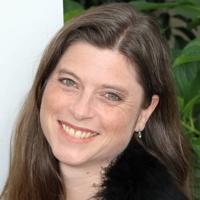Exploring the Fullness of Singing and Teaching Experiences Using Indigenist Research Paradigms
Thursday 12th September 2024, 5:00 PM - 7:00 PM (London Time)
Singing is, by its very nature, a complex activity involving physical, emotional, musical, relational, and cultural aspects. Many Western research paradigms, however, limit their engagement to one aspect at a time. Indigenist research paradigms ask researchers to consider multiple layers of relationality within a research process and honour the complex lived experience of co-researchers to better understand the fullness of experience of teaching, singing and researching. Based on the work of Indigenous scholars such as Shawn Wilson and Michelle Pidgeon, I developed a research approach relevant to voice pedagogy research that reflected the principles of an Indigenist relational paradigm: Respect, Relevance, Reciprocity and Responsibility.
This presentation will discuss the principles of Indigenist research paradigms, my experience of using them in my own voice pedagogy research, and the power of using a wholistic, relational paradigm to build understanding of music, singing and teaching. In addition, we will discuss the challenges faced by researchers in carrying out and presenting this research in an academic context.
Emily Bender
Emily Bender is a community-based voice teacher, singer and choral director based in the San Francisco Bay Area who works with diverse students of all ages in lessons, classes, and choirs.

Attend this course for as little as £22 as part of the Voice Professional Training CPD Award Scheme.
Learn MoreSorry, this is an archived short course...
We have plenty of upcoming short courses coming soon. See details of some of them below or look at the full list of short courses.

Thursday 19th February 2026
1:00 PM - 2:30 PM
Thursday 26th February 2026
1:00 PM - 2:30 PM
(London Time)
Performing Pain: Vocal Health in Emotional Roles!

Louisa Morgan
How connected are acted emotions to our real-life emotions? Are they expressed differently? Do they feel different in the body? This 2-part course with Louisa Morgan looks at the potential impact of acted emotion on vocal health, why we should consider it as voice practitioners, and how to care for our performers needing to work with it.


Tuesday 24th February 2026
5:00 PM - 7:00 PM
(London Time)
Incorporating CBT principles within vocal health and voice care

Dr Luke Aldridge-Waddon
Join Dr Luke Waddon as he introduces the principles and techniques within cognitive-behavioural therapy (CBT) in relation to the voice and voice care. He will discuss psychological factors relevant to the development and maintenance of voice disorders and how these might be approached from a cognitive-behavioural perspective. He will describe theoretical concepts and therapeutic components often used within CBT and consider how these might be applied when working with voice users.


Tuesday 3rd March 2026
5:00 PM - 7:00 PM
(London Time)
Sex differences in VOICE!

Dr Richard Lissemore
This two-hour workshop, led by performer, articulatory phoneticist, and voice physiologist, Dr. Richard Lissemore, will examine in detail the role that biological sex plays in the perception and pedagogy of singing voices. We'll consider how parameters such as anatomy, physiology, articulation, resonance, and radiated acoustics influence the perceptions and pedagogical decision-making of singing teachers.
